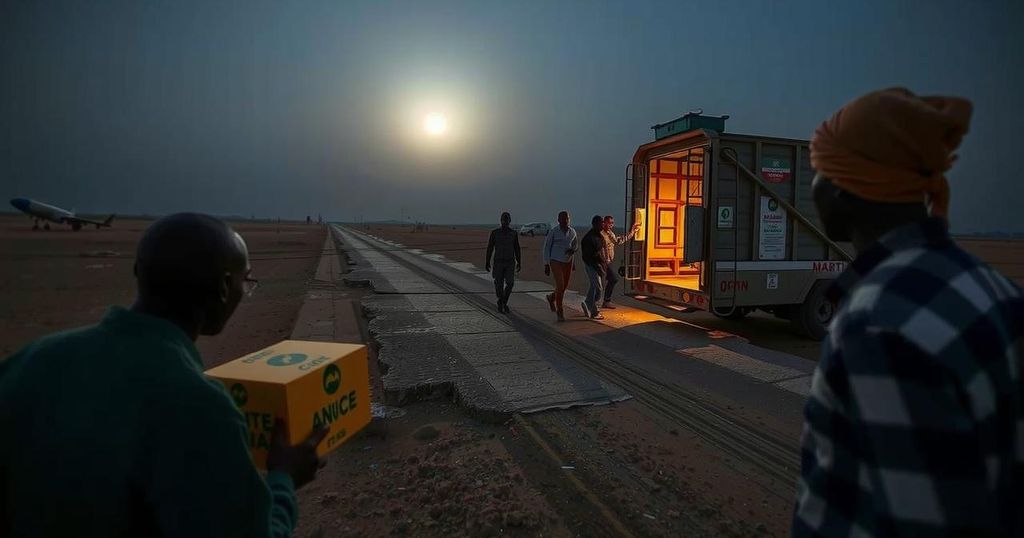Sudan’s Sovereign Council has extended the use of the Adre border crossing with Chad for aid delivery essential to combat severe food shortages in Darfur and Kordofan. Over 300 aid trucks carrying food and supplies for more than 1.3 million people have already passed through since reopening in August. The situation remains critical, with over 25 million individuals facing hunger due to ongoing conflicts.
Sudan’s Sovereign Council announced on Wednesday the extension of the Adre border crossing with Chad, a critical route for aid delivery to regions facing severe food shortages, particularly in Darfur and Kordofan. Originally closed by the military-led government in February, the crossing was reopened for a limited period in August, set to expire on November 15. This extension comes amidst ongoing conflict between the Sudanese Armed Forces and the paramilitary Rapid Support Forces (RSF), which controls much of Darfur. The humanitarian situation in Sudan remains dire, with over 25 million individuals currently suffering from acute hunger, and certain areas, notably a camp in Darfur, experiencing imminent famine conditions due to the protracted conflict. Despite government dissent against the reopening—amid fears of weapons deliveries by the RSF—aid agencies have relied on the Adre crossing as an efficient access point for much-needed supplies. Since reopening, over 300 aid trucks carrying provisions for more than 1.3 million people have utilized the Adre route, according to United Nations sources. The World Food Programme recently transported a convoy of 15 trucks loaded with food and nutritional support for 12,500 individuals in the Zamzam camp, illustrating the critical role of this corridor in alleviating human suffering in the region.
The humanitarian crisis in Sudan is exacerbated by ongoing violence and instability, particularly in the Darfur and Kordofan regions, where millions are at risk of famine. The Adre crossing is vital for aid agencies, providing a more efficient route for food and supplies than alternatives. The re-opening of this crossing after military closure underscores the complexities of Sudan’s political landscape, where competing military factions impact humanitarian efforts and accessibility, further straining the already fragile situation.
In conclusion, the extension of the Adre border crossing serves as a beacon of hope amidst a catastrophic humanitarian scenario in Sudan. With millions facing acute hunger and the risk of famine, the facilitation of aid delivery through this route is imperative. However, the underlying conflicts must be addressed to ensure sustainable solutions to food insecurity and humanitarian relief in the region.
Original Source: www.arabnews.com






